Fleurs du Mal Magazine


Or see the index
Ingeborg Bachmann geldt als een van de belangrijkste schrijvers van de twintigste eeuw.
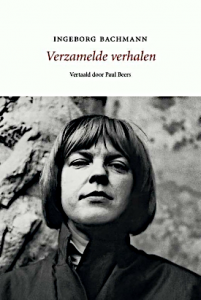 De stoutmoedigheid van de taal, de scherpte van haar inzicht en de energie van het gevoel vormen vanaf het begin de onverwisselbare eigenheid van haar proza.
De stoutmoedigheid van de taal, de scherpte van haar inzicht en de energie van het gevoel vormen vanaf het begin de onverwisselbare eigenheid van haar proza.
Het laat mensen zien op het kruispunt van hun bestaan, vóór er ingrijpende beslissingen worden genomen.
Verzamelde verhalen bevat de bundel Het dertigste jaar, met de nadruk op het intellect, en de tien jaar later na een ernstige crisis gepubliceerde bundel Simultaan, met de nadruk op gevoel en liefde.
Daarnaast is de nooit eerder vertaalde vroege bundel Het veer opgenomen met een grote variatie aan onderwerpen.
Verzamelde verhalen
Auteur: Ingeborg Bachmann
Taal: Nederlands
Vertaling: Paul Beers
Uitgeverij Koppernik
Hardcover
Oorspronkelijke releasedatum
04 februari 2021
Aantal pagina’s: 504
EAN 9789083089850
€ 29.90
• fleursdumal.nl magazine
More in: - Book News, - Bookstores, Archive A-B, Archive A-B, Bachmann, Ingeborg, Celan, Paul
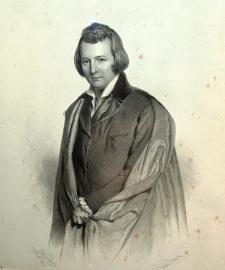
Deutschland.
Ein Wintermärchen
Im traurigen Monat November war’s,
Die Tage wurden trüber,
Der Wind riß von den Bäumen das Laub,
Da reist ich nach Deutschland hinüber.
Und als ich an die Grenze kam,
Da fühlt ich ein stärkeres Klopfen
In meiner Brust, ich glaube sogar
Die Augen begunnen zu tropfen.
Und als ich die deutsche Sprache vernahm,
Da ward mir seltsam zumute;
Ich meinte nicht anders, als ob das Herz
Recht angenehm verblute.
Ein kleines Harfenmädchen sang.
Sie sang mit wahrem Gefühle
Und falscher Stimme, doch ward ich sehr
Gerühret von ihrem Spiele.
Sie sang von Liebe und Liebesgram,
Aufopfrung und Wiederfinden
Dort oben, in jener besseren Welt,
Wo alle Leiden schwinden.
Sie sang vom irdischen Jammertal,
Von Freuden, die bald zerronnen,
Vom Jenseits, wo die Seele schwelgt
Verklärt in ew’gen Wonnen.
Sie sang das alte Entsagungslied,
Das Eiapopeia vom Himmel,
Womit man einlullt, wenn es greint,
Das Volk, den großen Lümmel.
Ich kenne die Weise, ich kenne den Text,
Ich kenn auch die Herren Verfasser;
Ich weiß, sie tranken heimlich Wein
Und predigten öffentlich Wasser.
Ein neues Lied, ein besseres Lied,
O Freunde, will ich euch dichten!
Wir wollen hier auf Erden schon
Das Himmelreich errichten.
Wir wollen auf Erden glücklich sein,
Und wollen nicht mehr darben;
Verschlemmen soll nicht der faule Bauch,
Was fleißige Hände erwarben.
Es wächst hienieden Brot genug
Für alle Menschenkinder,
Auch Rosen und Myrten, Schönheit und Lust,
Und Zuckererbsen nicht minder.
Ja, Zuckererbsen für jedermann,
Sobald die Schoten platzen!
Den Himmel überlassen wir
Den Engeln und den Spatzen.
Und wachsen uns Flügel nach dem Tod,
So wollen wir euch besuchen
Dort oben, und wir, wir essen mit euch
Die seligsten Torten und Kuchen.
Ein neues Lied, ein besseres Lied!
Es klingt wie Flöten und Geigen!
Das Miserere ist vorbei,
Die Sterbeglocken schweigen.
Die Jungfer Europa ist verlobt
Mit dem schönen Geniusse
Der Freiheit, sie liegen einander im Arm,
Sie schwelgen im ersten Kusse.
Und fehlt der Pfaffensegen dabei,
Die Ehe wird gültig nicht minder –
Es lebe Bräutigam und Braut,
Und ihre zukünftigen Kinder!
Ein Hochzeitkarmen ist mein Lied,
Das bessere, das neue!
In meiner Seele gehen auf
Die Sterne der höchsten Weihe –
Begeisterte Sterne, sie lodern wild,
Zerfließen in Flammenbächen –
Ich fühle mich wunderbar erstarkt,
Ich könnte Eichen zerbrechen!
Seit ich auf deutsche Erde trat,
Durchströmen mich Zaubersäfte –
Der Riese hat wieder die Mutter berührt,
Und es wuchsen ihm neu die Kräfte.
Heinrich Heine
(1797-1856)
Deutschland. Ein Wintermärchen
• fleursdumal.nl magazine
More in: 4SEASONS#Winter, Archive G-H, Archive G-H, Heine, Heinrich

Baignée
Un fruit de chair se baigne en quelque jeune vasque,
(Azur dans les jardins tremblants) mais hors de l’eau,
Isolant la torsade aux puissances de casque,
Luit le chef d’or que tranche à la nuque un tombeau.
Éclose la beauté par la rose et l’épingle !
Du miroir même issue où trempent ses bijoux,
Bizarres feux brisés dont le bouquet dur cingle
L’oreille abandonnée aux mots nus des flots doux.
Un bras vague inondé dans le néant limpide
Pour une ombre de fleur à cueillir vainement
S’effile, ondule, dort par le délice vide,
Si l’autre, courbé pur sous le beau firmament,
Parmi la chevelure immense qu’il humecte,
Capture dans l’or simple un vol ivre d’insecte.
Paul Valéry
(1871-1945)
Baignée
Poème
Album de vers anciens
• fleursdumal.nl magazine
More in: Archive U-V, Archive U-V, Valéry, Paul
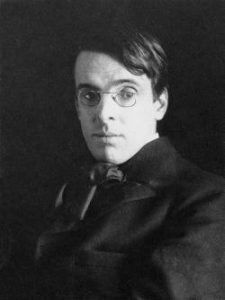
The Mask
‘Put off that mask of burning gold
With emerald eyes.’
‘O no, my dear, you make so bold
To find if hearts be wild and wise,
And yet not cold.’
‘I would but find what’s there to find,
Love or deceit.’
‘It was the mask engaged your mind,
And after set your heart to beat,
Not what’s behind.’
‘But lest you are my enemy,
I must enquire.’
‘O no, my dear, let all that be;
What matter, so there is but fire
In you, in me?’
William Butler Yeats
(1865-1939)
The Mask
• fleursdumal.nl magazine
More in: Archive Y-Z, Archive Y-Z, Yeats, William Butler
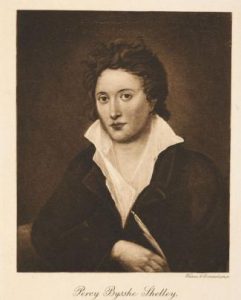
O! there are spirits of the air
O! there are spirits of the air
And genii of the evening breeze,
And gentle ghosts, with eyes as fair
As star-beams among twilight trees:—
Such lovely ministers to meet
Oft hast thou turned from men thy lonely feet.
With mountain winds, and babbling springs,
And moonlight seas, that are the voice
Of these inexplicable things
Thou didst hold commune, and rejoice
When they did answer thee; but they
Cast, like a worthless boon, thy love away.
And thou hast sought in starry eyes
Beams that were never meant for thine
Another’s wealth:—tame sacrifice
To a fond faith I still dost thou pine!
Still dost thou hope that greeting hands,
Voice, looks, or lips, may answer thy demands!
Ah! wherefore didst thou build thine hope
On the false earth’s inconstancy!
Did thine own, mind afford no scope
Of love, or moving thoughts to thee!
That natural scenes or human smiles
Could steal the power to wind thee in their wiles.
Yes, all the faithless smiles are fled
Whose falsehood left thee broken-hearted;
The glory of the moon is dead;
Night’s ghosts and dreams have now departed;
Thine own soul still is true to thee,
But changed to a foul fiend through misery.
This fiend, whose ghastly presence ever
Beside thee like thy shadow hangs,
Dream not to chase;—the mad endeavour
Would scourge thee to severer pangs.
Be as thou art. Thy settled fate,
Dark as it is, all change would aggravate.
Percy Bysshe Shelley
(1792 – 1822)
O! there are spirits of the air
1886
• fleursdumal.nl magazine
More in: # Classic Poetry Archive, Archive S-T, Archive S-T, Shelley, Percy Byssche

He tells of the Perfect Beauty
O cloud-pale eyelids, dream-dimmed eyes,
The poets labouring all their days
To build a perfect beauty in rhyme
Are overthrown by a woman’s gaze
And by the unlabouring brood of the skies:
And therefore my heart will bow, when dew
Is dropping sleep, until God burn time,
Before the unlabouring stars and you.
William Butler Yeats
(1865-1939)
He tells of the Perfect Beauty
• fleursdumal.nl magazine
More in: Archive Y-Z, Archive Y-Z, Yeats, William Butler
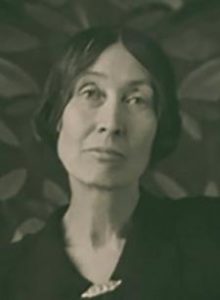
Submerged
I have known only my own shallows –
Safe, plumbed places,
Where I was wont to preen myself.
But for the abyss
I wanted a plank beneath
And horizons…
I was afraid of the silence
And the slipping toe-hold…
Oh, could I now dive
Into the unexplored deeps of me –
Delve and bring up and give
All that is submerged, encased, unfolded,
That is yet the best.
Lola Ridge
(1873-1941)
Submerged
• fleursdumal.nl magazine
More in: Archive Q-R, Archive Q-R, Ridge, Lola
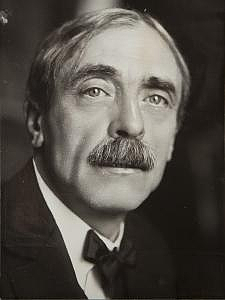
Naissance de Vénus
De sa profonde mère, encor froide et fumante,
Voici qu’au seuil battu de tempêtes, la chair
Amèrement vomie au soleil par la mer,
Se délivre des diamants de la tourmente.
Son sourire se forme, et suit sur ses bras blancs
Qu’éplore l’orient d’une épaule meurtrie,
De l’humide Thétis la pure pierrerie,
Et sa tresse se fraye un frisson sur ses flancs.
Le frais gravier, qu’arrose et fuit sa course agile,
Croule, creuse rumeur de soif, et le facile
Sable a bu les baisers de ses bonds puérils;
Mais de mille regards ou perfides ou vagues,
Son œil mobile mêle aux éclairs de périls
L’eau riante, et la danse infidèle des vagues.
Paul Valéry
(1871-1945)
Naissance de Vénus
Poème
Album de vers anciens
• fleursdumal.nl magazine
More in: Archive U-V, Archive U-V, Valéry, Paul
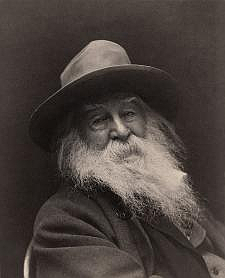
When I Heard at the Close of the Day
When I heard at the close of the day how my name had been receiv’d with plaudits in the capitol, still it was not a happy night for me that follow’d,
And else when I carous’d, or when my plans were accomplish’d, still I was not happy,
But the day when I rose at dawn from the bed of perfect health, refresh’d, singing, inhaling the ripe breath of autumn,
When I saw the full moon in the west grow pale and disappear in the morning light,
When I wander’d alone over the beach, and undressing bathed, laughing with the cool waters, and saw the sun rise,
And when I thought how my dear friend my lover was on his way coming, O then I was happy,
O then each breath tasted sweeter, and all that day my food nourish’d me more, and the beautiful day pass’d well,
And the next came with equal joy, and with the next at evening came my friend,
And that night while all was still I heard the waters roll slowly continually up the shores,
I heard the hissing rustle of the liquid and sands as directed to me whispering to congratulate me,
For the one I love most lay sleeping by me under the same cover in the cool night,
In the stillness in the autumn moonbeams his face was inclined toward me,
And his arm lay lightly around my breast – and that night I was happy.
Walt Whitman
(1819 – 1892)
Poem: When I Heard at the Close of the Day
(Published in the Leaves of Grass. 1900)
• fleursdumal.nl magazine
More in: Archive W-X, Archive W-X, Whitman, Walt
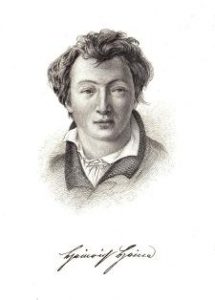
Friedrike
1
Verlaß Berlin, mit seinem dicken Sande
Und dünnen Tee und überwitz’gen Leuten,
Die Gott und Welt, und was sie selbst bedeuten,
Begriffen längst mit Hegelschem Verstande.
Komm mit nach Indien, nach dem Sonnenlande,
Wo Ambrablüten ihren Duft verbreiten,
Die Pilgerscharen nach dem Ganges schreiten,
Andächtig und im weißen Festgewande.
Dort, wo die Palmen wehn, die Wellen blinken,
Am heil’gen Ufer Lotosblumen ragen
Empor zu Indras Burg, der ewig blauen;
Dort will ich gläubig vor dir niedersinken,
Und deine Füße drücken, und dir sagen:
»Madame! Sie sind die schönste aller Frauen!«
2
Der Ganges rauscht, mit klugen Augen schauen
Die Antilopen aus dem Laub, sie springen
Herbei mutwillig, ihre bunten Schwingen
Entfaltend, wandeln stolzgespreizte Pfauen.
Tief aus dem Herzen der bestrahlten Auen
Blumengeschlechter, viele neue, dringen,
Sehnsuchtberauscht ertönt Kokilas Singen –
Ja, du bist schön, du schönste aller Frauen!
Gott Kama lauscht aus allen deinen Zügen,
Er wohnt in deines Busens weißen Zelten,
Und haucht aus dir die lieblichsten Gesänge;
Ich sah Wassant auf deinen Lippen liegen,
In deinem Aug’ entdeck ich neue Welten,
Und in der eignen Welt wird’s mir zu enge.
3
Der Ganges rauscht, der große Ganges schwillt,
Der Himalaja strahlt im Abendscheine,
Und aus der Nacht der Banianenhaine
Die Elefantenherde stürzt und brüllt –
Ein Bild! Ein Bild! Mein Pferd für’n gutes Bild!
Womit ich dich vergleiche, Schöne, Feine,
Dich Unvergleichliche, dich Gute, Reine,
Die mir das Herz mit heitrer Lust erfüllt!
Vergebens siehst du mich nach Bildern schweifen,
Und siehst mich mit Gefühl und Reimen ringen –
Und, ach! du lächelst gar ob meiner Qual!
Doch lächle nur! Denn wenn du lächelst, greifen
Gandarven nach der Zither, und sie singen
Dort oben in dem goldnen Sonnensaal.
Heinrich Heine
(1797-1856)
Friedrike
1823
• fleursdumal.nl magazine
More in: Archive G-H, Archive G-H, Heine, Heinrich

Peggy
My Peggy is a young thing,
Just enter’d in her teens,
Fair as the day, and sweet as May
Fair as the day, and always gay.
My Peggy is a young thing,
And I’m not very auld,
Yet well I like to meet her at
The Wawking of the Fauld.
My Peggy speaks sæ sweetly,
When’er we meet alane,
I wish næ mair to lay my care,
I wish næ mair of a’ that’s rare.
My Peggy speaks sæ sweetly,
To a’ the lave I’m cauld;
But she gars a’ my spirits glow
At Wawking of the Fauld.
My Peggy smiles sæ kindly,
Whene’er I whisper Love,
That I look down on a’ the Town,
That I look down upon a Crown.
My Peggy smiles sæ kindly,
It makes my blythe and bauld,
And naithing gi’es me sic delight,
As Wawking of the Fauld.
My Peggy sings sæ saftly,
When on my pipe I play;
By a’ the rest it is confest,
By a’ the rest, that she sings best.
My Peggy sings sæ saftly,
And in her songs are tald,
With innocence the wale of Sense,
At Wawking of the Fauld.
Allan Ramsay
(1684-1758)
Peggy
• fleursdumal.nl magazine
More in: # Classic Poetry Archive, Archive Q-R, Archive Q-R

A Coat
I made my song a coat
Covered with embroideries
Out of old mythologies
From heel to throat;
But the fools caught it,
Wore it in the world’s eyes
As though they’d wrought it.
Song, let them take it,
For there’s more enterprise
In walking naked.
William Butler Yeats
(1865-1939)
A Coat
• fleursdumal.nl magazine
More in: Archive Y-Z, Archive Y-Z, Yeats, William Butler
Thank you for reading Fleurs du Mal - magazine for art & literature